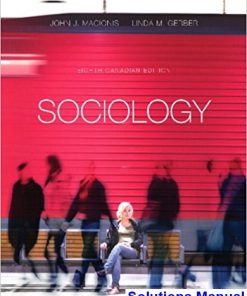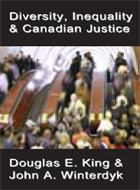Introduction
1. Canadian Culture in a Global Context – Timothy P. McCaulety
2. Social Interaction: The Emergence of Trans-Situational Ethnicity in a Multicultural Space – Parbattie Pamsarran
3. Socialization: Being and Becoming Canadian – Stephen E. Bosanac and Janice Hill
4. Gender and Sexuality: Morality, Gender, and the Sexual Regulation of Children – Janice Hill
5. Health, Disability and Ageing – Sharon Dale Stone
PART II: Group Interactions
In the second section we explore group interaction and how Canadian social life is organized beyond the family. The family is in itself a primary group, but the family group is also linked with a community outside the home. Religious and ethnic groups serve as informal settings of interaction and secondary sources of socialization. We explore how networks, group and bureaucracies become ‘communities in themselves’. The overarching theme of this section illustrates how Canadian individuals are becoming increasingly linked to the global community.
Introduction
6. Families: Family Definitions and Theories – Timothy P. McCauley
7. Religion: Religion’s Changing Face in a Multicultural Canada – David A. Nock
8. Racial and Ethnic Communities: The African Francophone Identities within the Francophone Diaspora
9. Bureaucracies; Understanding Bureaucracies – Claudio Colaguori and Merle A. Jacobs
PART III: Inequalities
Part III of the text examines the Canadian system of stratification in terms of race, ethnicity, gender and crime. Capitalism is an important element in the maintenance and reconstruction of Canadian social inequality. The capitalistic model of competition masks the important role of historical wealth that is ascribed through intergenerational inheritance. Race, gender, disability and family poverty continue to play a role in maintaining the status quo. Moreover, globalization and its neo-liberal ‘survival of the fittest’ increase social inequality and exploitation over time. After reading this section, students will discover how ascribed statuses are affected by both local and global economic forces.
Introduction
10. Social Inequality: Keeping up Appearances – Abigail Salole
11. Racial and Ethnic Inequality: Reflections on Globalization, Multiculturalism ad Diversity – Zabedia Nazim
12. Gender and Inequality: Global Migration, Gender, and Inequality – Guida Man
13. Crime and Deviance in Canada – Patricia O’Reilly and Thomas Fleming
PART IV: Canadians in the Global Context
Canadians are increasingly tied to economic and cultural developments beyond the nation-state. This collection of chapters highlights how Canadians function in a time when, according to David Korton ‘corporations rule the world’. Mass media plays a significant role in mobilizing Canadians beyond their border. Media feeds globalization and sustains its neo-liberal economic activities. Students also read about how politics and social movements, enhanced by new technologies, serve to either promote or reduce global inequalities over time.
Introduction
14. Mass Media in the Lives of Globalized Subjects – Stephen L. Muzzatti
15. Immigration and Globalization – Joseph Mensah and Robert M. Bridi
16. Politics and Social Movements: Mapping out the Movement – Scott MacLeod
17. Transnationalism and Globalization – Alexander Shvarts
PART V: Future Trends
The last section of this anthology deals with future trends in the process of globalization. To predict future developments, it will first be necessary to critically evaluate the key theories of social change in terms of how they help us to understand Canada in relation to global patterns and processes. The chapters engage students by asking them to consider the role of education in shaping the future and how sociology can help us to manage and adapt to the byproducts of globalization such as environmental decay. It will also be necessary to provide students with the basic tools for understanding and interpreting sociological research in light of the theories of social change. The tie between theory and methods will help students to strive to find their place in the new globalized economic, political and cultural realities of the early twenty-first century.
Introduction
18. Social Change: Social Change in a Global Framework – Timothy P. McCauley
19. Education: Globalization, Internationalization and Canadian Education – Jac J.W. Andrews, David Peat, and Jim Paul
20. Sociology and the Environment – Wayne Crosby and John R. Parkins
21. Research Methods: Becoming a Critical Consumer and Producer of Research – Heather L. Garrett








 RELATED
RELATED







